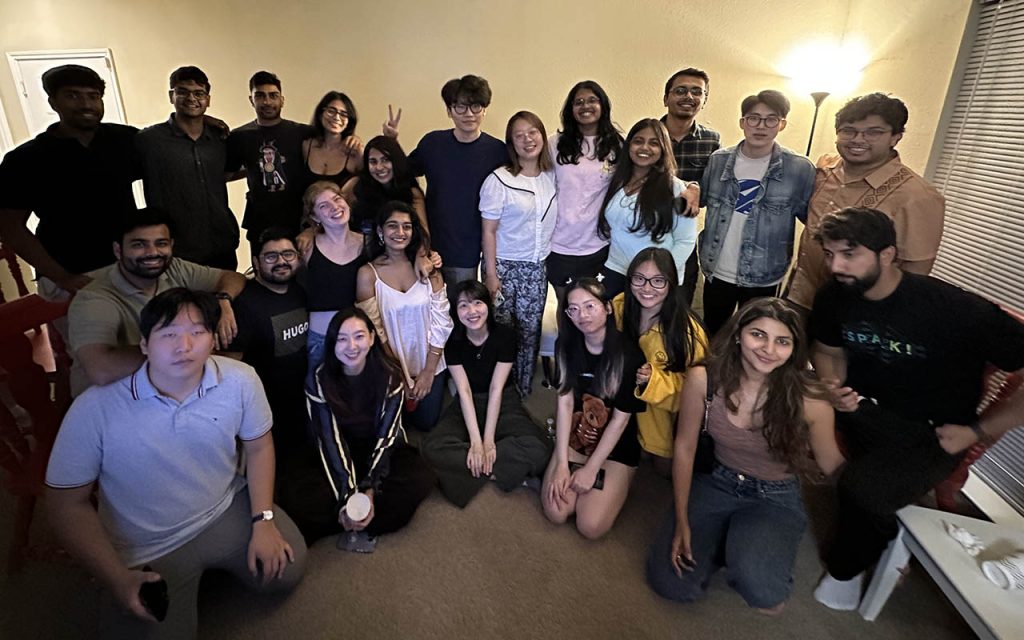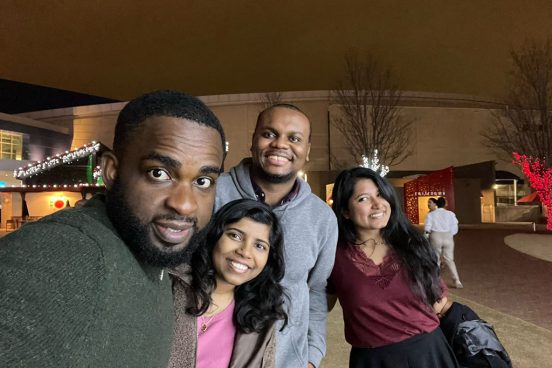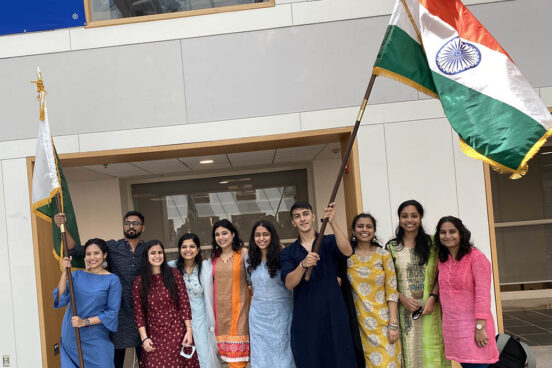Duke MQM Student Blog

Finding Belonging Through Food: Settling In as an International Student
Adjusting to life in the U.S. was about more than just adapting to a new food culture; it was about finding a way to feel at home in a place that was vastly different from where I grew up.

Moving to a new country for graduate school is an exhilarating yet daunting journey, especially when it’s halfway across the world. I came to the United States from Chennai, India five years ago for my undergraduate studies, and even though I’ve grown accustomed to certain aspects of life here, the experience of being an international student still comes with unique challenges. For me, food has been one of the most powerful ways to stay connected to my roots while navigating the cultural differences that define life in the U.S.
In the MQM program, where the pace is intense and the learning curve is steep, finding moments of comfort and connection is crucial. That’s why, early in the program, a few friends and I decided to host a potluck — a gathering that not only celebrated the diverse backgrounds of our classmates but also provided a taste of home for each of us. Here’s how that experience helped us create a sense of belonging in our new environment.
Acknowledging Cultural Differences
One of the biggest cultural differences I noticed when I moved to the U.S. is how food here is often a “blank canvas” that people customize to their individual preferences. In America, you can walk into almost any restaurant and tailor your meal to meet specific dietary needs or personal tastes. This reflects an underlying cultural value of individuality and personal choice that permeates many aspects of American life. In some ways, food here is like an extension of one’s identity, with each person assembling their dish in a way that feels right to them.

Back home in India, however, food tends to be more of a collective experience. Indian cuisine doesn’t offer the same degree of customization by default. You have vegetarian or non-vegetarian options, yes, but the dishes are typically prepared according to traditional recipes passed down through generations. There’s a sense of shared experience in this approach to food — one that reinforces community and tradition. Meals bring people together around familiar, comforting flavors, and in many ways, the food itself reflects shared values and collective identity.
Using Food as a Gateway For Connection
Adjusting to life in the U.S. was about more than just adapting to a new food culture; it was about finding a way to feel at home in a place that was vastly different from where I grew up. The MQM program is rigorous, and with its fast-paced structure, it can be easy to feel lost in the whirlwind of classes, assignments, and networking events, this challenge is compounded by the homesickness that naturally arises when you’re far from family, familiar foods, and cultural touchstones. We hoped that by sharing our food, we could share a bit of our culture and, perhaps, make this transition a little easier for everyone.

For me, sharing a dish from Tamil Nadu with my classmates allowed me to reconnect with my roots in a meaningful way. I explained the spices and ingredients that are staples of South Indian cuisine, and in return, I got to learn about the culinary traditions that my classmates grew up with.
The potluck ended up being one of the most memorable experiences of the program so far. We had students from all over the world — China, Pakistan, Korea, Indonesia, Kazakhstan, Russia, U.K., U.S., Bangladesh, and, of course, India — each contributing a dish that held personal meaning. As we gathered around a table overflowing with food from different cultures, it became clear that this was more than just a meal. It was an expression of who we are, where we come from, and the flavors that remind us of home. Through these exchanges, we found common ground, realizing that while we might come from different parts of the world, we all share the same desire for connection and belonging.

The Value of Belonging
Events like this potluck underscore why diversity and inclusion are so essential in educational settings. It’s not just about bringing people from different backgrounds together, it’s about creating spaces where each person feels valued and seen. In a program like MQM, moments like these offer a chance to slow down, reflect, and celebrate the richness of our different experiences.
For international students in particular, finding community can be a lifeline. When you’re adjusting to a new academic system, a new social environment, and a new culture all at once, small acts of inclusion make a big difference. I’m grateful that Fuqua encourages these kinds of gatherings, allowing us to create an environment where everyone can feel a little more at home.
To any prospective or incoming international student, I encourage you to embrace your culture and share it with others. Finding a sense of belonging in a new country is challenging, but by connecting through food, stories, and shared experiences, we can all help make Fuqua — and anywhere we go — a more inclusive place.



